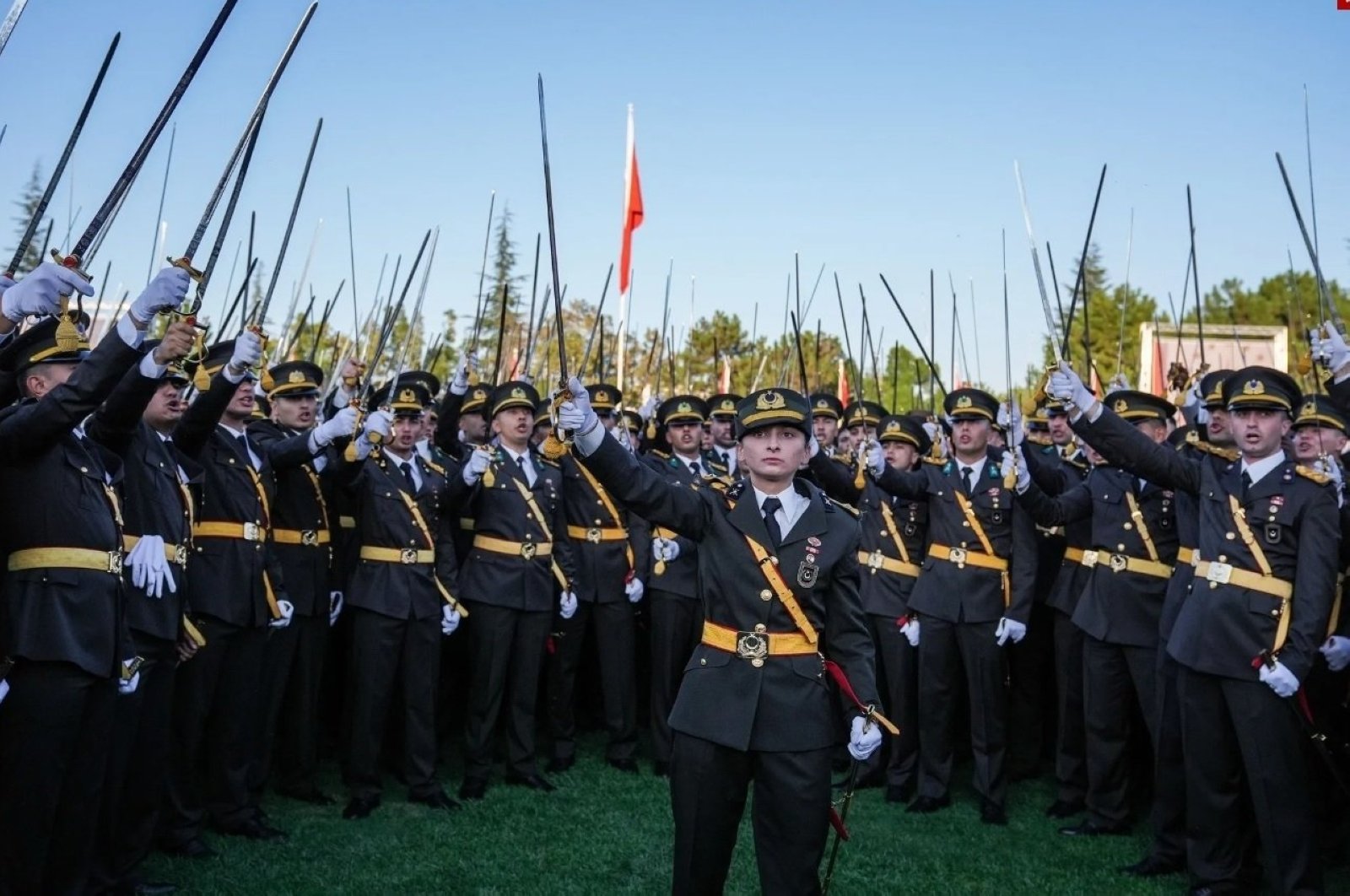
Defense Ministry sources clarified that a recent debate over the fate of military graduates taking an "alternative oath” during a ceremony deviated from the issue at the core and turned into a defamation campaign for the army.
Opposition parties were quick to rally behind the group of soldiers raising their swords and shouting, "We are soldiers of Mustafa Kemal (Atatürk)” during an Aug. 30 ceremony. Minutes before, they had met President Recep Tayyip Erdoğan, who congratulated the new graduates, only to condemn the footage of graduates reciting the discontinued military oath.
Sources said on Thursday that the graduates were not charged with holding their swords in defiance or shouting the name of Atatürk but displayed "undisciplinary behavior in a deliberate, collective way.”
Authorities had earlier announced disciplinary proceedings against those participating in the oath, including valedictorian Ebru Eroğlu, along with some superiors of the graduates at the military academy.
The oath became a battle cry for critics of the government or self-styled defenders of "secularism” against what they call the "Islamist” administration. The debate over the sword incident reflects broader concerns about Türkiye’s military and its role in the country, encapsulating the enduring trauma of "military tutelage” within Turkish society. Military tutelage in Türkiye refers to the historical dominance of the military over civilian politics, which has shaped the country’s political landscape for decades. This concept encompasses the influence exerted by the military in political decision-making and governance, often justified by the "need to preserve national security and uphold the secular nature of the republic.”
The era of military tutelage was marked by coups and interventions that profoundly impacted Turkish democracy. However, under the leadership of President Recep Tayyip Erdoğan and his Justice and Development Party (AK Party), there has been a significant shift in addressing and countering military influence in Turkish politics. In its early years, the AK Party faced challenges from the remains of the military tutelage and secular elite that had sought to close the party. The AK Party was founded by a splinter group of the now-defunct Welfare Party (RP) whose leader was forced to resign during a 1997 coup against his government deemed "reactionary,” a derogatory term used for the conservative Muslim community.
Sources said on Thursday that the graduates were told that they could not recite the discontinued oath before the ceremony but the valedictorian insisted on reciting it and urged fellow graduates to gather around while inviting press members to the venue where the infamous video of the oath was taken. They said although some graduates were aware that the alternative oath would be recited, others among them simply convened there to raise their swords as a military tradition.
"It is unacceptable to create a perception that the army is divided over Atatürk’s legacy. Tying Atatürk’s name to unauthorized actions is wrong,” the sources said, referring to the late leader’s compassion for a well-disciplined army.
Sources also said that everyone should be more sensitive and careful against defamation toward the army at a time of heightened struggle against terrorism, border security and escalated accomplishments within the country and abroad.
